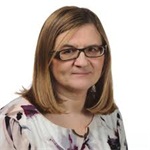The Bilingual Competence of Local Council Staffers in the Centre and Littoral Regions of Cameroon
Article ID: 748
DOI: https://doi.org/10.30564/jler.v2i1.748
Abstract
This work sets out to appraise the state of individual bilingualism in francophone local councils in Cameroon. The work checks the use of English by francophone local council workers and of French by their anglophone mates with the focus on the four communicative language skills, i.e., speaking, reading, writing and listening. The ethnographic approach to data collection was adopted, and self-rating through a questionnaire was the major tool used. The eight-item questionnaire was administered to 192 local council staffers. They were 177 (91.14% of 192) francophone workers selected out of a pool of over 500 workers in six local councils situated in two big francophone towns i.e., Douala and Yaounde on the one hand, and 15 (8.85% of 192) out of a total of 16 anglophone workers in these same localities. The analysis of the data collected revealed that very low percentages of francophone workers could perform the following tasks using English: discuss office issues with their bosses (10.16% of 177 subjects), read out a speech (8.47%), write a letter to their collaborators (4.51%), and listen to someone with understanding (20.33%). Conversely, a high proportion of anglophone workers were able to perform these same tasks using French i.e., discuss office issues with their bosses (73.33% of 15 subjects), read out a speech (20%), write a letter to a collaborator (33.33%), and listen to someone with understanding (80%). In short, 63.28% of 177 francophone workers reported having a low performance in receptive skills in English as opposed to 20% of 15 anglophone workers who said the same for French; similarly, 7.34% of 177 francophones claimed to have a good command of productive skills in English as opposed to 53.33% of 15 anglophones who claimed to have a command of French. The implications for the study are that official French-English bilingualism in Cameroon is a mere political wish which is not a reality on the field.
Keywords
Full Text:
 PDF
PDF
References
[1] Ayafor, I. M. (2005). Official bilingualism in Cameroon: Instrumental or integrative policy? ISB4: Proceedings of the 4th International Symposium on Bilingualism, (eds). Cohen J., McAlister K. T., Rolstad K., and MacSwan J., 123-142. Somerville, MA: Cascadilla Press.
[2] Baker, C. (2006). Foundation of bilingual education and bilingualism. 4th edn, British Library Cataloguing in Publication.
[3] BAPEC (Bamenda Provincial Episcopal Conference) (2017) Memorandum to President Paul Biya on the Current Situation in the Northwest and Southwest Regions.
[4] http://www.cameroon-info.net/article/cameroon-bamenda-provincial-episcopal-conference-memorandum-to-president-paul-biya-on-the-current-situation-in-278001.html
[5] Biloa, E. (1999). Bilingual education at the University of Yaounde I: The teaching of French to English–speaking students. In Echu, G. and Grundstrom A, W. (eds.), Official bilingualism and linguistic communication in Cameroon. New York: Peter lang, 53-74.
[6] Bloomfield, L. (1933) Language. New York: Holt, Rhinehart and Winston.
[7] Dieu, M. & Renaud, P. (eds). (1983). Atlas linguistique du Cameroun. Paris: CERDOTOLA and ACCT
[8] Echu, G. (2004). The language question in Cameroon. Linguistik Online 18(1) 19-33 http://www.linguistik-online.de/18_04/echu.pdf
[9] Essomba Fouda, S. M. (2013). Evaluating the degree of individual bilingualism in Yaounde. Journal of Literature, Languages and Linguistics, 2, pp. 46-54
[10] Fishman, J. A. (1971). The sociology of language: An interdisciplinary social science approach to language in society. In Fishman, F. A. (ed.), Advances in the sociology of language Vol I, Mouton, The Hague, 217–104.
[11] Hamers, J. F. and Blanc, M. H. (1989). Bilinguality and bilingualism. Cambridge: Cambridge University Press.
[12] Haugen, E. (1953). The Norwegian language in America: A study in bilingual behaviour. Philadelphia: UP of Pennsylvania.
[13] Hideyuki Taura (1996). Bilingual measurement. U.S. Department of Education, Educational Resources Information Center, ED 413763.
[14] Konings, P. and Nyamnjoh, F.B. (1997) The Anglophone Problem in Cameroon.
[15] The Journal of Modern African Studies , 35, 207-229.
[16] https://openaccess.leidenuniv.nl/bitstream/handle/1887/4616/ASC-1246231-023.pdf;sequence=1
[17] https://doi.org/10.1017/S0022278X97002401
[18] Kouega, J. P. (2005). Promoting French-English individual bilingualism through education in Cameroon. Journal of Third World studies 22(1), 185-196.
[19] Kouega, J. P. (2006) Aspects of Cameroon English usage: A lexical appraisal. Muenchen, Germany: Lincom Europa
[20] Kouega, J. P. (2007). The language situation in Cameroon. Current Issues in Language Planning (CILP), 1-94
[21] Kouega, J. P. (2018). The Anglophone problem in Cameroon: Focus on education. Open Access Library Journal, 5: e4408. https://doi.org/10.4236/oalib.1104408
[22] Lewis, M. P., Simons, G. F., & Fennig C. D. (eds.). (2016). Ethnologue: Languages of the World, 19th edn. Dallas, Texas: SIL International. Online version: http://www.ethnologue.com/19/.
[23] Mackey, W. F. (1970). A typology of bilingual education. In Andersson & Boyer, Bilingual Schooling in the United States, Vol. 2, pp.-65-83,
[24] Macnamara, J. (1967). The bilingual’s linguistic performance: A psychological overview. Journal of Social Issues 23, 58-77.
[25] Stokes, J. and Duncan, D. (1989). Linguistic assessment procedures for bilingual children. In Duncan, D (ed.) Working with bilingual language disability. London: Chapman & Hall.
[26] Wei, Li (Ed.). 2000. The bilingualism reader. Routledge. UK.
Refbacks
- There are currently no refbacks.
 +65 65881289
+65 65881289 contact@bilpublishing.com
contact@bilpublishing.com






